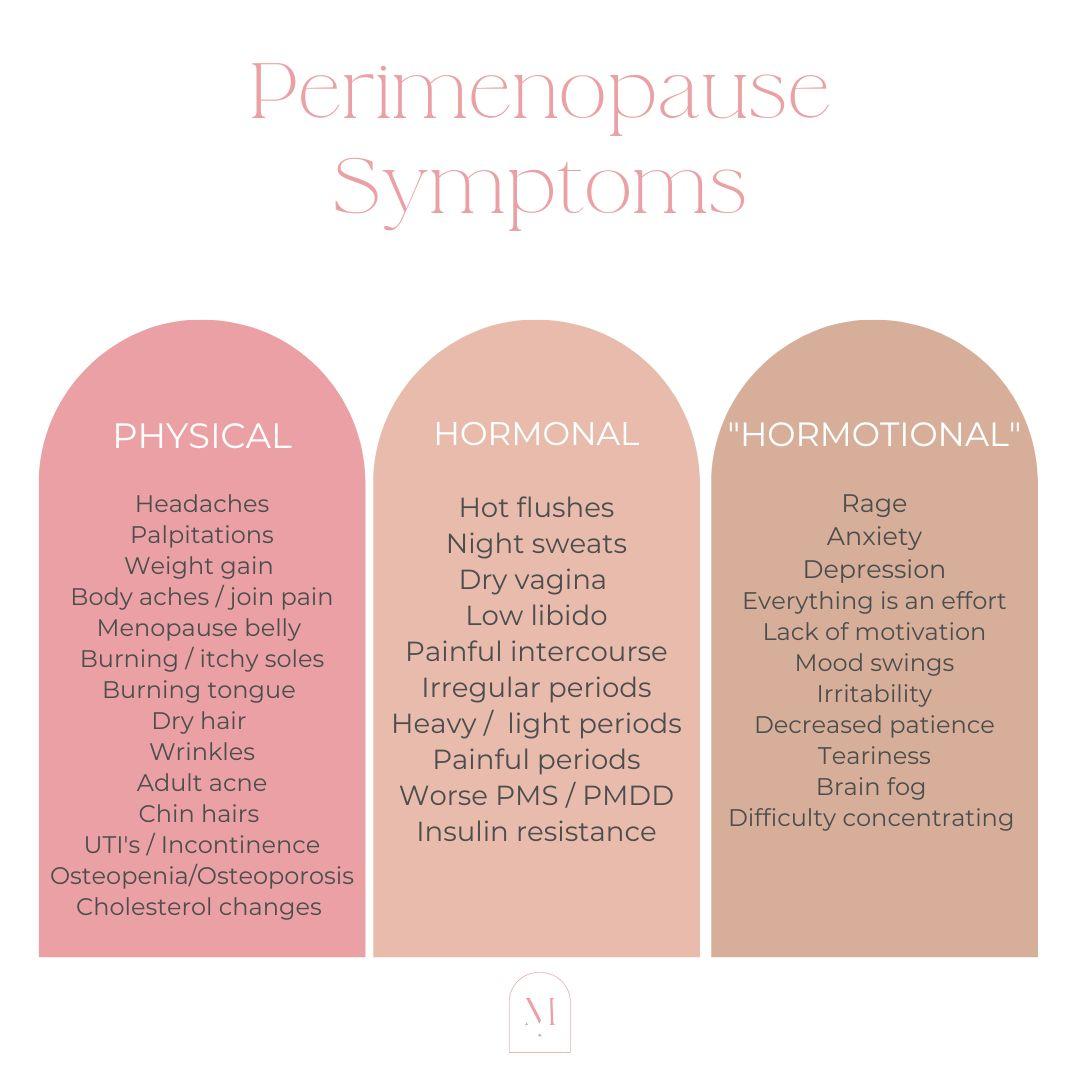“You are in Perimenopause well before you skip your first period”
Night sweats? Hot flushes? Libido gone south?…Or maybe you can’t think clearly, why did I walk into this room? And what’s with the anxiety?
If you’re 35 and above, welcome to perimenopause.

Waiting for a missed period to signal you’re in menopause is like waiting for the snot to realise its winter.
Perimenopause is a transitional phase leading up to menopause, where our hormones are all over the place and our menstrual cycles become irregular. A missed period can be one sign of perimenopause, but relying solely on it as an indicator would leave you with many years of confusion and symptoms that could have been attended to.
Perimenopause is a seasonal change, a physiological hormonal transition. It is not a pathological hormonal imbalance.
Perimenopause is a gradual process, our hormones don’t just suddenly drop off the edge of the cliff. It may be that you experience the more typical symptoms such as hot flashes, night sweats, mood swings, changes in libido, and irregular periods.
The Pre- Perimenopause
There is enormous variability for individual women. The reality is, our hormones can start fluctuating in our late 30’s- the pre- perimenopause – we can see more subtle changes- our bleed might be a bit heavier or a bit earlier, we notice we really don’t feel like sex as much or we may be a bit more moody. Some of us may not be able to shed those extra 3 kgs. The symptoms ramp up in our 40’s.
I only vaguely remember my initial perimenopausal changes in my early 40’s- my cycles were much shorter 24-26 days instead of my usual 30 days. I didn’t pay much attention back then as I was still trying to have babies, my entire focus was my two “geriatric pregnancies” (such a delightful term. NOT), at 41 and 46 yrs.
I do remember my period returned whilst still breast-feeding Matilda from 47 yrs until now, and it was HEAVY. I mean gushing heavy, looking like a crime scene heavy, needing to change my ModiBodi 24 hour overnight maxi absorbency period undies, every 4 hours heavy. And clotted. I remember bleeding 20 days straight. I remember bleeding 8 days later. And I remember the rage, the blood boiling rage that I had never felt before, hitting the top end of the Richter scale in 1 second flat.
I read somewhere (god I wish I would keep those references) that there are at least 101 different symptoms associated with perimenopause! 101 weird and wonderful symptoms, no wonder we have no idea what is going on. I’m going to give you about 50 and I like to divide them into 3 pillars:

Fun Fact
From menarche to menopause, women on average will have 450 periods in our lifetime. That’s 2,250 days of bleeding. 54,000 hours. 6.1 years. That’s a bloody long time (pun intended)
What’s going on during Perimenopause?
Our ovaries are tired and grumpy. They become a bit resistant to stimulation by FSH and LH hormones and our ovaries start to slow their production of oestradiol, progesterone and testosterone. We are running out of eggs. Menopause itself is exhaustion of ovaries, and by the time we reach menopause, very few eggs (ova) remain. Ovulation declines, reducing the frequency and reliability of progesterone production.
Oestrogen and progesterone decline- progesterone first- and FSH & LH start to increase trying to stimulate the ovaries, several years before ovulation actually stops.
Is there a blood test to confirm it?
Nope, not specifically.
Your GP may want to do a blood test to look at follicle-stimulating hormone (FSH) and oestradiol. FSH goes up whilst estradiol goes down.
But, because our hormones are fluctuating, a single blood test result is inconclusive and unfortunately may lead to a little bit of (unintentional) medical gaslighting. You might rock up to your Doc hand in hand with your hot flushes, foggy brain and dry vagina, and get a blood test done to be told your hormones are completely normal.
But you know you don’t feel normal.
You can Doctor shop, keep getting tests only to be told there is nothing wrong, you are not menopausal, you must be depressed, here take this antidepressant.
It’s simply because at the time of your test, your hormones were normal, but if you had tested the next day or the day before, your hormones could be wildly different.
You are not going crazy. You are in perimenopause.
Dr Miranda Myles Natural Health & Fertility, Naturopath & Acupuncturist, is passionate about working with couples in the management of their fertility issues. Miranda is dedicated to help couples achieve optimal physical and emotional health prior to conception. Miranda provides a beautifully supportive and nurturing environment to allow you to reach your optimal health goals, to enable you to achieve a successful conception, pregnancy and baby.



